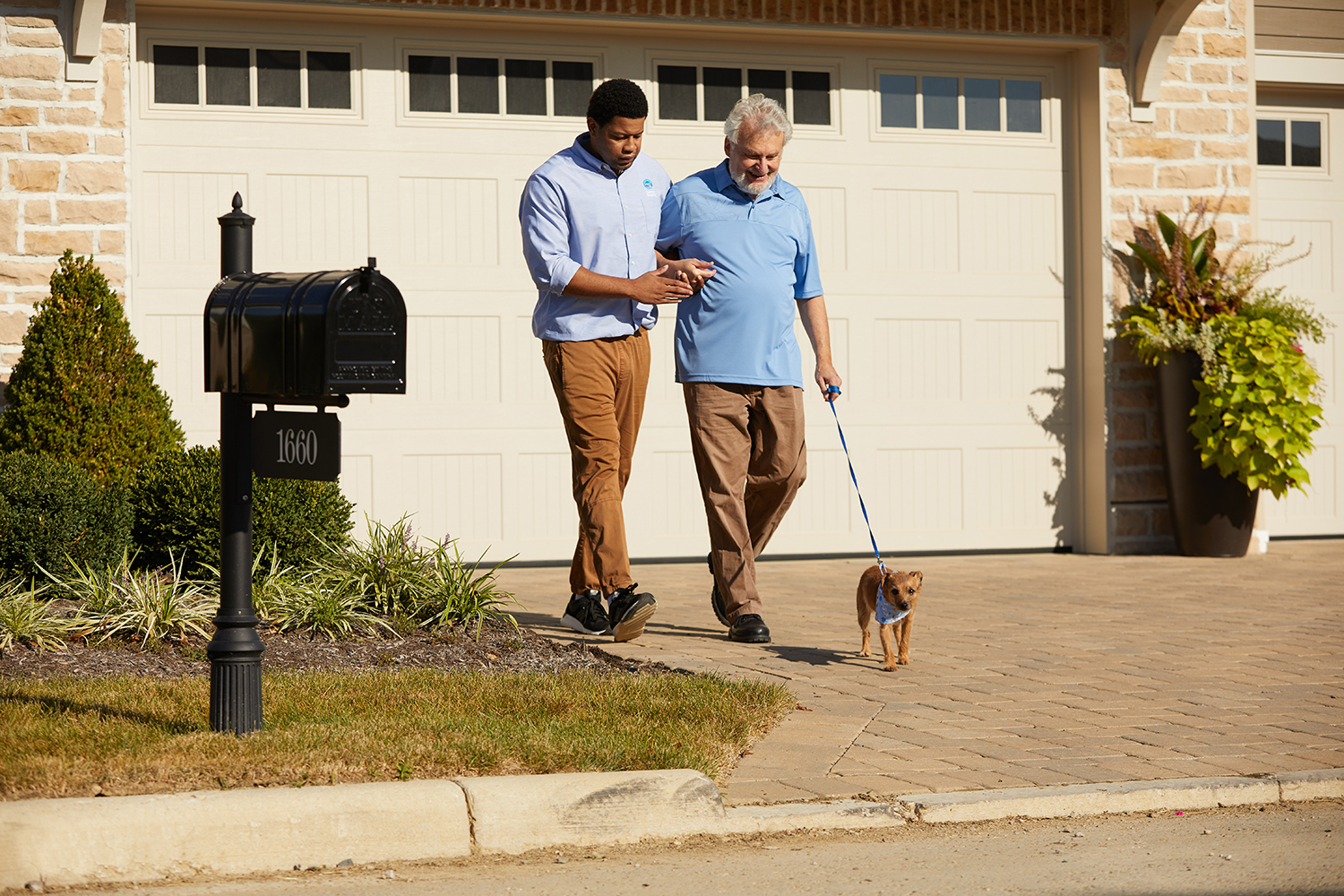Often we use a search engine for something we need to learn more about. The words ‘Alzheimer’s care facilities near me’ certainly would come up in a number of inquiries. But give thought to the fact that the closest appropriate care to you may be at home.

Consider Care at Home
When we start the process of looking for care options for Alzheimers patients, we are faced with difficult choices. Sometimes the easy choice would seem to be assisted living facilities or memory care facilities. These can be great choices depending on the stage and type of dementia you are faced with finding care for. One of the first things that may come to mind during this decision is cost. If they are in the early stages of the disease, cost can be a major consideration as Alzheimer’s is a progressive disease and you could be faced with a long journey if the person is otherwise healthy. Over time, this can stretch financial resources to the breaking point. For that reason, home care can be a very viable option as a starting point in many situations.
One of the key things to consider when looking at home care or an assisted living facility is safety. It may seem odd to mention assisted living along with safety concerns but some facilities that will take someone with Alzheimer’s into their building may not have the staffing or capability to handle more advanced stages of the disease. Many of the same issues, like stoves or open doors that allow wandering, can be just as dangerous at an assisted living facility as it can be living at home by themselves. Facilities themselves may not suit the patient from an emotional standpoint. Memory care facilities are normally able to handle a variety of issues related to Alzheimer’s, and therefore generally are a better choice, if they are affordable.
There are a number of benefits to providing care at home that could enlist the services of a home care provider when the family can’t provide support or when they need supplemental care.
Such possible benefits include:
- Allowing the senior to remain in a familiar setting
- Ensuring that the senior is safe at home or when involved with outside activities
- Having a home care aide assist the senior with prompting to reinforce key messages and help them with tasks. For example, a home care aide may remind the senior how to dress, help avoid dangerous areas in the home and reduce their stress by reviewing family pictures and names.
- Helping the family caregiver provide bathing, toileting, and hygiene for the senior
- Providing respite care or free time for family members
- Be available to help with additional support for the family caregiver when the senior attends functions such as family events
- Assist with recreation and appropriate distraction for the individual, including keeping them involved in favorite hobbies
- Having a nurse to help the family or caregiver administer medications
- Teaching family members and friends how to best communicate with the Alzheimer’s sufferer
One thing about Alzheimer’s is that it is an ever-changing and progressing disease. That’s why so many families find it beneficial to provide care in a home-based setting so they can understand the needs prior to making the decision to move their loved one to a facility.
Preparing for Care at Home
There are many things to consider prior to taking on care at home. The first thing to do is work with a doctor or medical professional that understands Alzheimer’s. Often, a general practitioner does not have the experience necessary to provide the support you need to make good decisions and offer the medical care necessary. Medical systems generally will have practitioners that specialize in Alzheimer’s. These people could be Geriatric Nurse Practitioners; Geriatric Medical Doctors; Neurologists or even MD’s that specialize in seniors. These medical professionals may be able to prescribe medications that reduce the symptoms of the disease after they determine it is Alzheimer’s.
The next thing to consider is the safety aspect of caring for Alzheimer’s victims at home. The stage of the disease will often determine the viability of home care. It’s always a great question to ask the doctor to see if they feel things are still manageable at home. Many home care companies can also send out their RN or Care Coordination Specialist to help decide if they are good candidates for home care.
Considerations for safely caring for someone with Alzheimer’s is not an insurmountable task provided they are good candidates. Here is a list from the National Institute on Aging of things to consider. The institute points out these as primary factors to consider for staying home alone:
Does the person with Alzheimer's:
- Become confused or unpredictable under stress?
- Recognize a dangerous situation, for example, fire?
- Know how to use the telephone in an emergency?
- Know how to get help?
- Stay content within the home?
- Wander and become disoriented?
- Show signs of agitation, depression, or withdrawal when left alone for any period of time?
- Attempt to pursue former interests or hobbies that might now warrant supervision, such as cooking, appliance repair, or woodworking?
You may want to seek input and advice from a healthcare professional to assist you in these considerations. As Alzheimer's disease progresses, these questions will need ongoing evaluation.
Caring for Your Loved One at Their Home, or Yours
Not all of us have the option to take care of a loved one with Alzheimer’s in our own homes. If it’s possible, it can be a rewarding experience to make a tremendous difference in the life of another. It may also present many challenges to those that attempt it. As a family caregiver, it’s always wise to look out for your own well being. Here’s a guide to help you stay at the top of your game and work with other people involved.
Once you have taken on the task of family caregiving it is a great idea to make sure your skills are honed and appropriate for the level of care needed. Fortunately, the Alzheimer’s Association provides free online training to help you and other family members. If you hire an outside agency you should question them on the type of training and level of experience caregivers will have that will be working with your loved one. There are a number of other standard things to consider when you select a home care company--here’s a list of important questions to ask.
Facilities Near Me
If you choose to use a facility now or at some point in the future, a quick visit to your google browser will give you a number of choices when it comes to memory care facilities. Each one of these facilities may have their own specific niche, for instance some may be better set up to handle wandering, while others can handle highly combative patients. Just like doing this at home, the faces of Alzheimer’s will change during their stay at a facility. You need to be vigilant in making sure the facility you choose can continue to provide adequate services for your loved one as the disease progresses. A good facility will want to evaluate the patient for appropriateness and will do ongoing evaluations to make sure they are able to meet their changing care needs.
Check out our website for more information and resources on caring for someone with Alzheimer's or dementia.
Acknowledgments:
Madalyn and Leonard Abramson Center for Jewish Life
Minnesota North Dakota Alzheimer’s Association
Comfort Keepers





